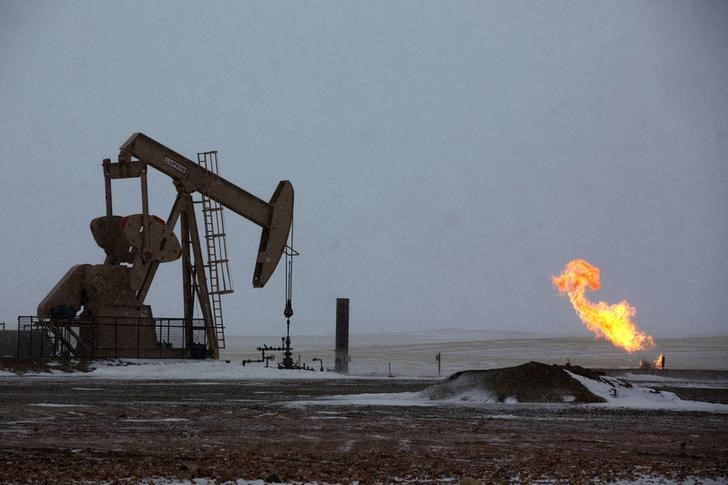By Nia Williams
CALGARY, Alberta, Feb 21 (Reuters) - ConocoPhillips (NYSE:COP) Corp COP.N has revised down over a billion barrels of oil sands reserves because of low global crude prices, a company filing showed on Tuesday, the latest sign that some of Canada's vast hydrocarbon potential may be left untapped.
The U.S. oil major said developed and undeveloped reserves of bitumen - the heavy viscous oil found in northern Alberta's remote oil sands - totalled 1.2 billion barrels at the end of 2016, down from 2.4 billion barrels at the end of 2015.
"Revisions, primarily in the oil sands, decreased proved undeveloped reserves due to lower prices," the company said in the filing.
The numbers in the U.S. Securities Exchange Commission (SEC)filing provide a more detailed breakdown of the global reserves cut Conoco announced in its quarterly results in early February, when it debooked 1.75 billion barrels of oil equivalent of reserves globally. Hirshberg, Conoco's executive vice president for production, drilling and projects, told investors on the quarterly call the company expects to rebook the reserves if current prices hold.
Likewise Martin King, an analyst with GMP FirstEnergy (NYSE:FE) in Calgary, said the debooking likely had more to do with SEC rules requiring companies to evaluate economic reserves at year-end.
But the fact that the oil sands make up 70 percent of the reduction underlines how much of Canada's resources are uneconomic in a weaker oil environment.
The oil sands have some of the highest full-cycle breakeven costs in the world, with new thermal projects costing needing U.S. crude prices of $60 a barrel, according to estimates from consultancy Wood Mackenzie.
Since the global crude price slump first started in mid-2014 nearly 20 oil sands projects have been deferred, including Royal Dutch Shell's RDSa.L 80,000 barrel per day Carmon Creek project, which was abandoned entirely.
